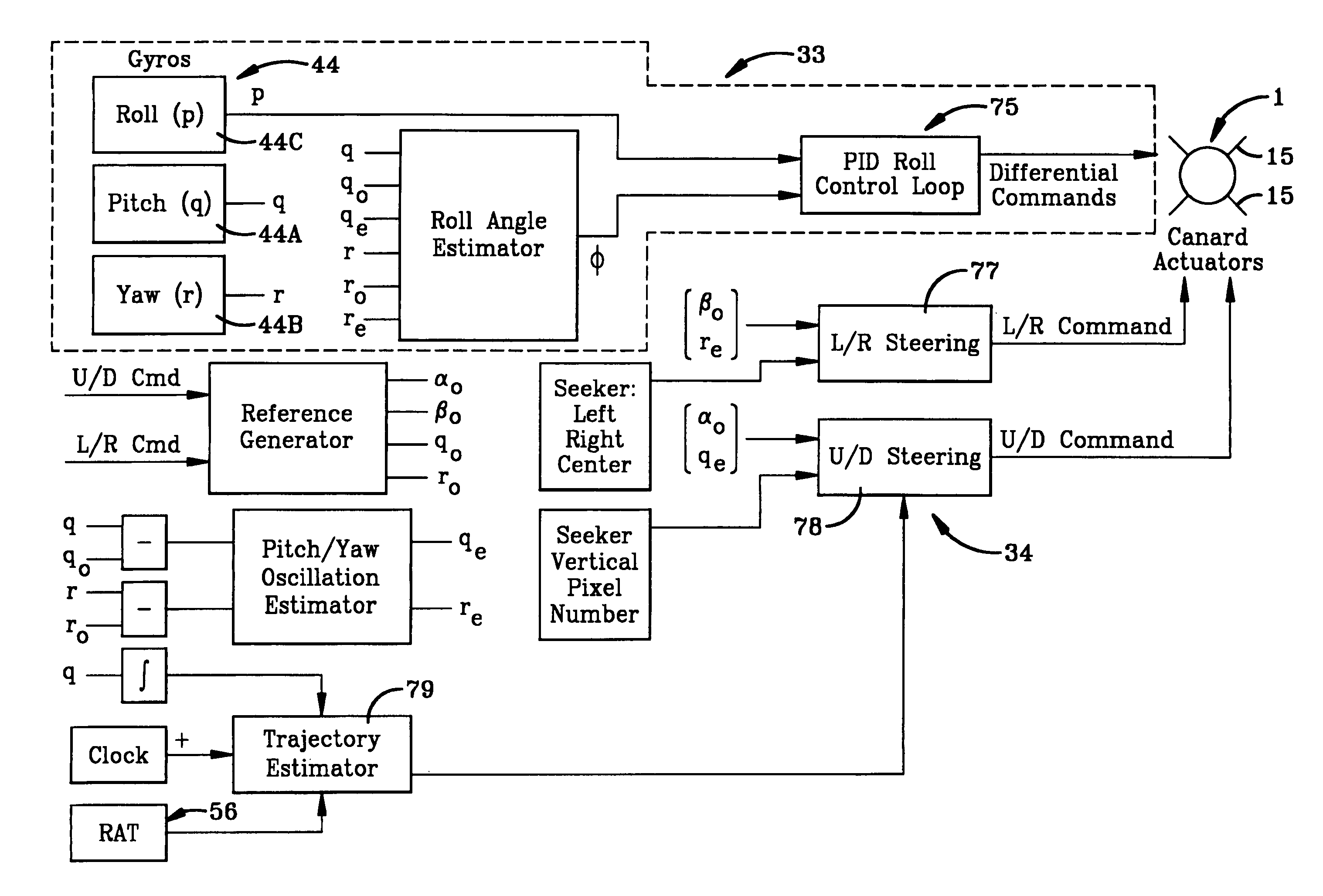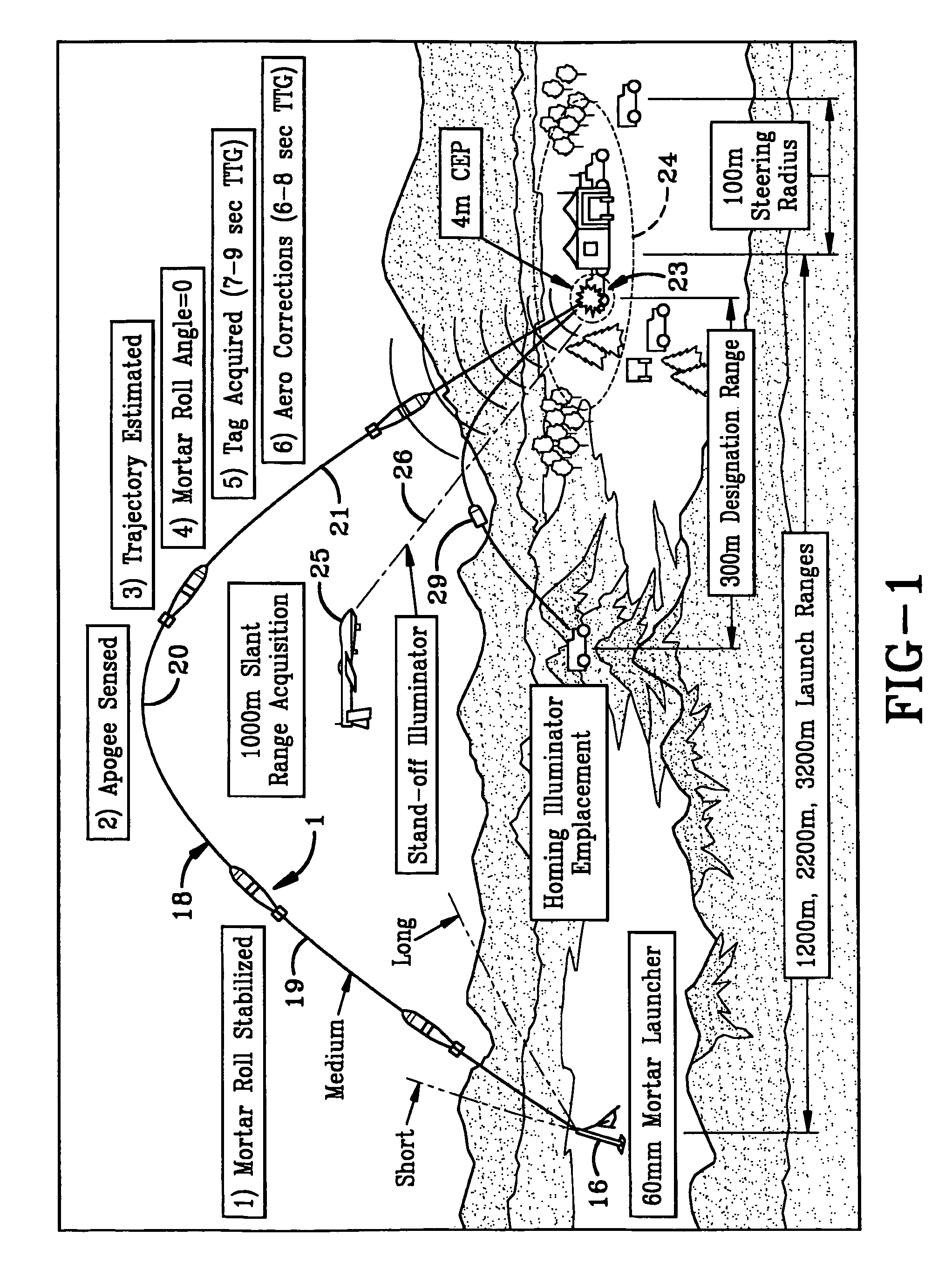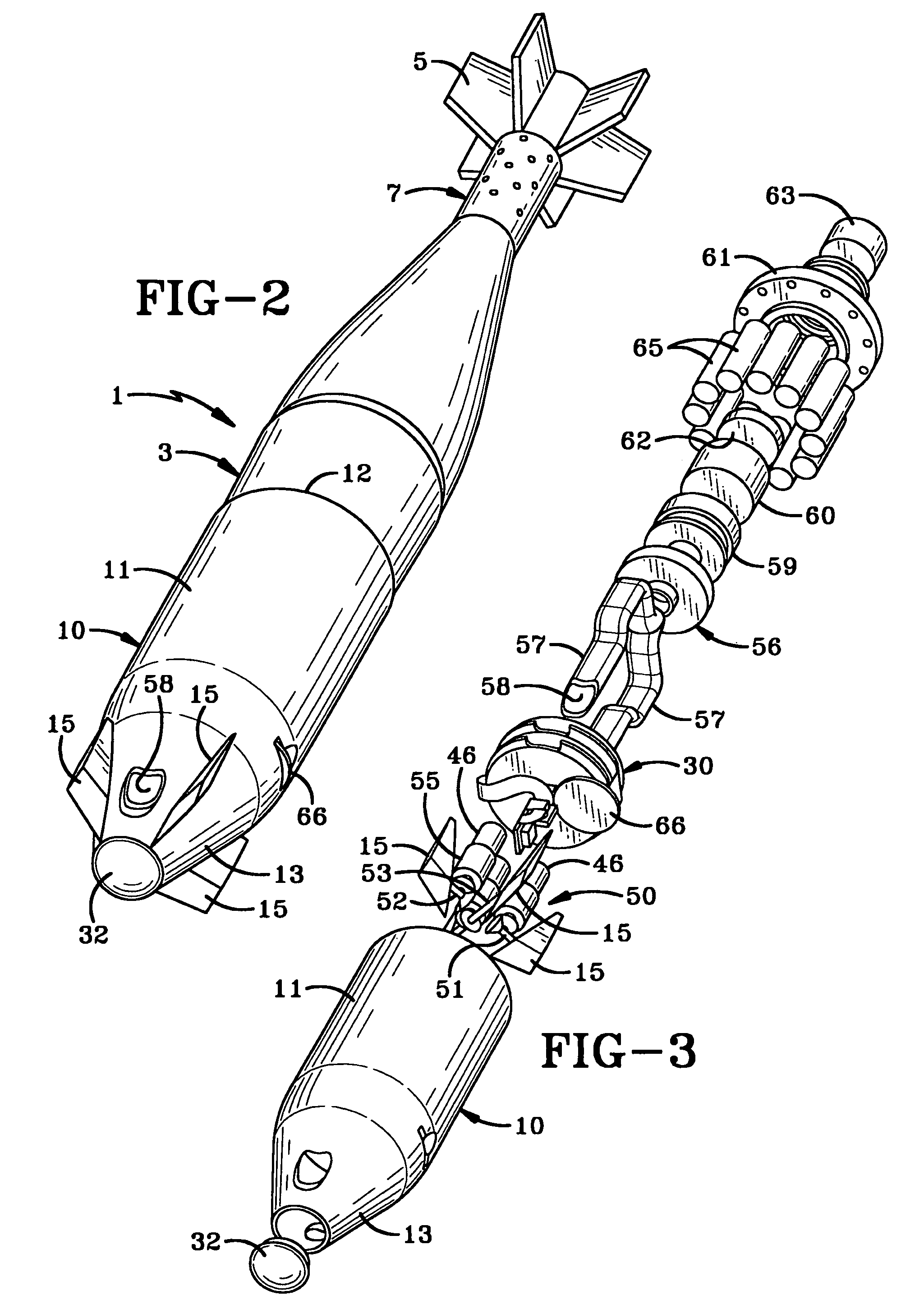Optically guided munition control system and method
a control system and technology of a guided munition, applied in the field of armaments, can solve the problems of low accuracy, unguided munitions are subject to aim error and wind disturbance, and mortars are becoming less effective in today's precision combat environment, and achieve low cost, low volume stability, and cost-effective
- Summary
- Abstract
- Description
- Claims
- Application Information
AI Technical Summary
Benefits of technology
Problems solved by technology
Method used
Image
Examples
Embodiment Construction
[0032]A preferred embodiment of the control system and method of the present invention for optically guiding a munition toward a target is shown diagrammatically in FIG. 1. The optically guided munition is indicated generally at 1, and preferably is a mortar, such as a 60 mm mortar. An example of such a mortar shell or round is shown in FIGS. 2 and 3. Mortar 1 includes a main body 3 formed with a hollow interior in which is contained an explosive charge. At the rear of body 3 will be usual aerodynamic stabilizing fin 5 with a propellant charge being located within an adjacent housing 7. In accordance with one of the features of the invention, a replacement fuse indicated generally at 10 is mounted on the front or fore portion of body 3, preferably by a threaded connection at 12. Fuse 10 includes a housing 11 having a tapered front portion 13 on which is mounted a plurality of guidance canards 15. Fuse 10 replaces a standard nose / fuse construction used with body 3, and thus enables t...
PUM
 Login to View More
Login to View More Abstract
Description
Claims
Application Information
 Login to View More
Login to View More - R&D
- Intellectual Property
- Life Sciences
- Materials
- Tech Scout
- Unparalleled Data Quality
- Higher Quality Content
- 60% Fewer Hallucinations
Browse by: Latest US Patents, China's latest patents, Technical Efficacy Thesaurus, Application Domain, Technology Topic, Popular Technical Reports.
© 2025 PatSnap. All rights reserved.Legal|Privacy policy|Modern Slavery Act Transparency Statement|Sitemap|About US| Contact US: help@patsnap.com



